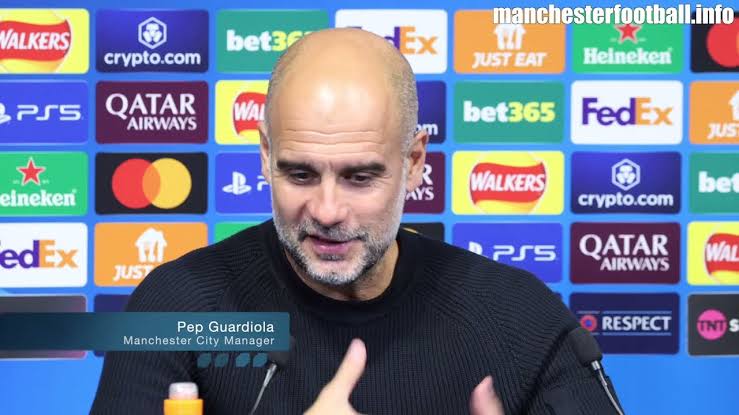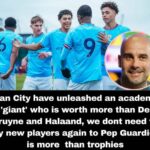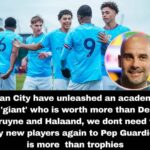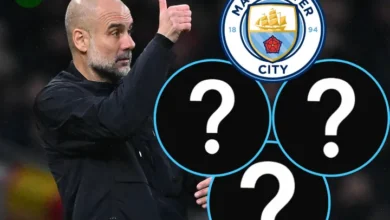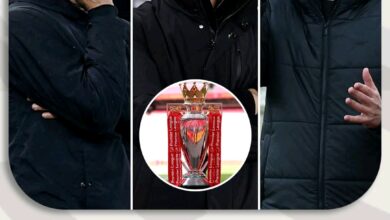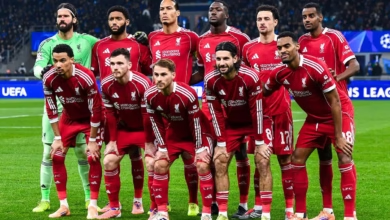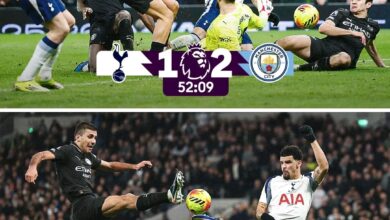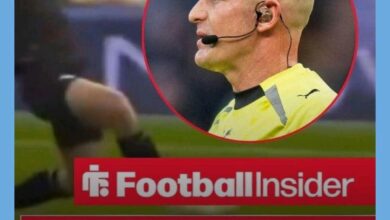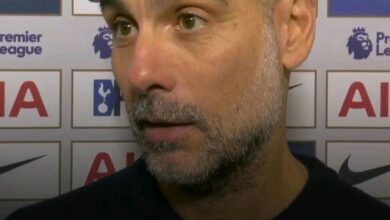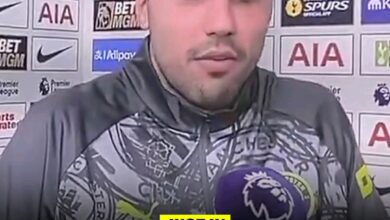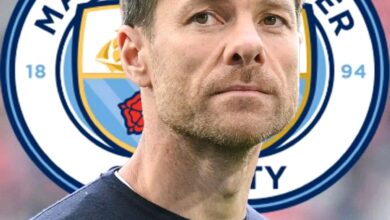Manchester City manager Pep Guardiola says he “should have” begun picking Nico O’Reilly and James McAtee in the starting eleven earlier in the campaign.

In a candid moment of self-reflection, Manchester City’s visionary manager Pep Guardiola has publicly acknowledged a tactical oversight that may have significant implications for the club’s future. The Catalan tactician, known for his meticulous approach to player development and squad management, recently expressed regret over his hesitation to integrate two of the club’s most promising young talents—Nico O’Reilly and James McAtee—into the first team earlier in the season.
During a recent press conference that followed yet another commanding performance from his side, Guardiola offered a rare glimpse into his decision-making process, revealing a moment of managerial self-doubt that has since evolved into clarity.
“Now I reflect why Nico O’Reilly didn’t play in November, December, January, February or James McAtee too,” Guardiola confessed, his tone suggesting genuine remorse. “I should have done it! In that moment, I thought maybe they were not ready, and now look what happened. They are ready, that’s why they play.”
This admission carries particular weight coming from Guardiola, a manager whose career has been defined by an unwavering confidence in his football philosophy and decision-making. His willingness to publicly acknowledge this misjudgment speaks volumes about his commitment to continuous improvement, even after accumulating one of the most impressive managerial resumes in football history.
At the center of Guardiola’s reflection are two graduates from City’s esteemed academy system, both representing the future of the club’s midfield creativity.
O’Reilly, a technically gifted midfielder with exceptional vision and close control, has long been touted as one of the brightest prospects within Manchester City’s celebrated academy. Despite his obvious talent and impressive performances in youth competitions, O’Reilly’s integration into the senior squad had been measured and cautious.
Prior to April, O’Reilly’s first-team experiences were largely limited to domestic cup competitions, where Guardiola traditionally offers opportunities to academy graduates. These appearances, while valuable for the young midfielder’s development, failed to provide the consistent high-level competition necessary for rapid progression.
The turning point came when Guardiola handed O’Reilly his first Premier League start against Leicester City in early April. Since that watershed moment, the young maestro has started six consecutive matches, demonstrating a maturity and composure that belies his limited senior experience.
O’Reilly’s performances have vindicated Guardiola’s eventual faith in him while simultaneously highlighting what might have been had the manager trusted his instincts earlier in the campaign. The midfielder’s seamless adaptation to the intensity and tactical demands of Premier League football suggests he had been ready for this step up long before he was given the opportunity.
McAtee’s journey parallels O’Reilly’s in many respects, though with subtle differences that reflect the unique challenges faced by young players breaking into elite squads. Nicknamed the “Salford Silva” for his stylistic similarities to former City legend David Silva, McAtee has long been identified as a potential successor to the creative mantle left vacant by the Spaniard’s departure.
While McAtee had been afforded more Premier League minutes than O’Reilly, these came predominantly as a substitute, with his starts reserved primarily for FA Cup and Carabao Cup fixtures. This pattern of utilization suggested Guardiola’s reluctance to fully trust McAtee in high-stakes league encounters, despite the player’s evident technical quality.
Recent weeks have seen a significant shift in this approach, with McAtee starting two of City’s last four league games. This increased involvement coincides with a period where the midfielder has displayed growing confidence and influence, contributing meaningfully to City’s fluid attacking play and demonstrating an increasingly assured presence in the final third
Guardiola’s hesitation to incorporate these talented youngsters had not gone unnoticed in the wider football world, with several clubs monitoring their situations with predatory interest.
O’Reilly’s limited playing time prompted Chelsea to make an exploratory approach during the January transfer window. Though Manchester City rebuffed this inquiry, the Blues’ interest served as a stark reminder of the risk associated with failing to provide pathways for exceptional young talents.
McAtee, meanwhile, had attracted considerable attention at the season’s outset, with multiple clubs expressing interest in securing his services either permanently or on loan. Perhaps most intriguingly, rumors circulated that German champions Bayer Leverkusen had contemplated including McAtee as part of a potential swap deal for their highly-coveted midfielder Florian Wirtz, underscoring the high regard in which the City academy graduate is held across European football.
These transfer machinations add context to Guardiola’s recent reflections, suggesting his regret extends beyond purely footballing considerations to encompass the potential business implications of his selection decisions. Had either player grown frustrated with their peripheral roles and engineered moves away from the Etihad, City would have lost not only exceptional talents but significant fine ManagemenGuardiola’s candid admission highlights one of the most delicate balancing acts in elite football management: weighing the immediate demands of competing for major honors against the longer-term imperative of developing future stars.
At a club of Manchester City’s stature, where success is measured in trophies and every point dropped represents a potential derailment of title ambitions, the pressure to field proven performers can often overshadow the developmental benefits of blooding young talent. This pressure is particularly acute for Guardiola, whose tenure at City has established an expectation of perfection that leaves minimal margin for the inevitable inconsistencies of youth.
Against this backdrop, Guardiola’s hesitation becomes more understandable, if not entirely justified. The manager’s responsibility extends beyond individual player development to encompass the collective aspirations of the club, its supporters, and its ownership. This responsibility creates a risk-averse environment where the known quantity often trumps the exciting prospect.
What makes Guardiola’s reflection particularly significant is his recognition that, in this specific instance, caution may have been the riskier approach. By acknowledging that O’Reilly and McAtee were indeed ready for greater involvement months before he granted it, the manager implicitly accepts that his team may have benefited from their youthful energy, creativity, and fearlessness during a demanding campaign.
Manchester City’s relationship with its academy talent exists within a complex structural context that adds further nuance to Guardiola’s reflection. The club has invested heavily in creating one of world football’s most impressive youth development infrastructures, from state-of-the-art training facilities to an extensive global scouting network designed to identify and nurture exceptional young players.
This investment has produced a steady stream of technically accomplished prospects, many of whom possess the attributes to thrive in Guardiola’s possession-based system. However, the same financial might that enables this youth development also funds the acquisition of established world-class talent, creating an extremely competitive environment for academy graduates seeking first-team opportunities.
Phil Foden’s gradual integration into the City first team has often been cited as the model for academy progression under Guardiola—a patient, methodical development path characterized by carefully managed exposure and incremental increases in responsibility. While ultimately successful in Foden’s case, this template may not be universally applicable, with different players requiring different developmental approaches.
Guardiola’s reflection suggests a growing recognition that rigidly applying the “Foden model” risks squandering opportunities for accelerated development when players demonstrate readiness for greater challenges. O’Reilly and McAtee’s successful recent performances indicate that a more individualized, responsive approach to talent integration might better serve both the players and the club.
Beyond its immediate relevance to O’Reilly and McAtee’s career trajectories, Guardiola’s admission carries broader implications for Manchester City’s talent development philosophy and potentially for elite football more generally.
For City, the manager’s public recognition of this misjudgment may signal a subtle shift in approach, with greater emphasis placed on readiness rather than age or experience when evaluating academy graduates for first-team opportunities. This could accelerate the integration of other highly-rated prospects currently progressing through the club’s youth system, creating a more dynamic interface between academy and first team.
More broadly, Guardiola’s reflection contributes to an ongoing reassessment of youth development in elite football, challenging the conventional wisdom that young players require gradual, controlled exposure to senior football. The rapid adaptation demonstrated by O’Reilly and McAtee suggests that exceptional talents may be capable of making more immediate impacts than traditionally assumed, provided they are given sufficient trust and tactical guidance
With O’Reilly and McAtee now firmly established in Guardiola’s first-team considerations, attention naturally turns to what their increased involvement might mean for Manchester City’s immediate and long-term future.
In the short term, the emergence of these two creative midfielders provides Guardiola with additional tactical flexibility during the demanding final stretch of the season. Their energy and technical quality offer welcome rotation options as City continues to compete on multiple fronts, while their fearlessness and desire to impress can inject fresh impetus into a squad navigating the physical and mental fatigue of a grueling campaign.
Looking further ahead, the successful integration of O’Reilly and McAtee represents a significant victory for City’s academy system and a potential blueprint for future talent development. Their progression demonstrates a viable pathway from youth team to first team, potentially inspiring the next generation of academy prospects while reinforcing the club’s reputation as an institution where exceptional young players can fulfill their potential.
For Guardiola personally, this episode demonstrates his continued capacity for growth and adaptation even after decades at the pinnacle of football management. His willingness to acknowledge and learn from misjudgments speaks to the intellectual honesty that has characterized his coaching career and suggests his evolutionary approach to management remains intact.mz
Pep Guardiola’s admission of regret regarding his handling of Nico O’Reilly and James McAtee offers a fascinating glimpse into the decision-making processes of one of football’s most celebrated minds. In acknowledging that he should have integrated these talented youngsters earlier, Guardiola demonstrates both humility and a commitment to maximizing the potential of every player under his guidance.
As O’Reilly and McAtee continue to repay their manager’s belated faith with impressive performances, their emergence stands as a testament to Manchester City’s youth development infrastructure and to Guardiola’s ultimate willingness to trust in youth when the quality is evident. While the manager may regret not acting sooner, his decision to eventually embrace these emerging talents has created an opportunity for City to benefit from their abilities for years to come.
In a sport often defined by its unforgiving pace and forward momentum, Guardiola’s moment of reflection reminds us that sometimes the most valuable lessons come from acknowledging what might have been. For Manchester City’s talented young duo, the future now appears limitless, their manager’s public vote of confidence providing the platform from which their considerable talents can truly flourish on the Premier League stage and beyond.

